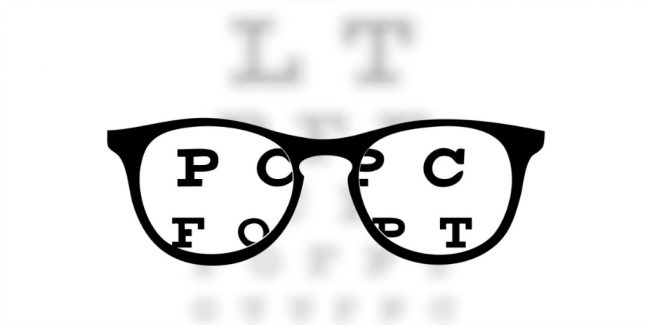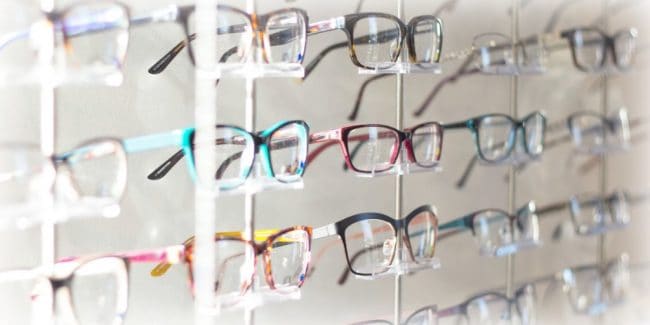How Can I Save Money on My Vision Care?
(This page may contain affiliate links and we may earn fees from qualifying purchases at no additional cost to you. See our Disclosure for more info.)
An unfair truth of life: if you lost the DNA vision lottery and need corrective lenses, not only do you have to deal with the hassle of eye exams, glasses, or contacts, you have to pay for it, too.
We at Women Who Money understand as a lot of us wear glasses or contacts. So we've put together this guide to help you save as much as you can on vision care.
You can then put this part of your life on autopilot and focus on more important things – like paying off debt, growing your emergency fund, investing or saving more money, or earning more at work.
Save Money on Eye Exams
If you don’t have vision insurance as an employee benefit, eye appointments for yourself or family members can get expensive. Luckily, there are several ways to save money on visits to the optometrist.
First, check with your local Costco Optical Center, BJ’s, or Sam’s Club.
These stores have vision centers where you can get eye exams for less than your local eye doctor and they do accept many vision insurance plans.
Often, these stores will run specials or offer coupons for big discounts on your eye exam too.
If you don’t live near a big box retailer or aren’t a member, chain stores like America’s Best also offer deals like “buy 2 pairs of glasses for $70 and get a free eye exam” (the exam is $45 if you don’t purchase glasses).
Wal-Mart offers a comprehensive eye health and vision exam for $64.
Eye exams are also covered by FSA or HSA accounts, so if you have either, make sure to reimburse yourself.
Save Money on Glasses
Thanks to the internet, buying glasses is easier and cheaper than ever. Online competition has drastically reduced the cost of prescription lenses in the last few years.
Sites like Glasses.com, Zenni Optical, and the GlassesShop all have glasses starting at less than $20 per pair.
Because they operate much like wholesalers, these online retailers are able to offer affordable prices on a commodity previously costing hundreds of dollars.
How do the sites work?

You’ll need a prescription. You can obtain one through your regular optometrist. Just make sure to ask for your prescription as you’re leaving, and be sure to avoid the temptation (or pressure) to buy your glasses in-house. They’ll likely be much more expensive.
Your prescription will contain several important numbers.
You’ll input the Sphere (SPH) and Cylinder (CYL) of both your left eye (OS) and your right eye (OD), as well as the PD, the Pupillary Distance.
Make sure your prescription contains those pieces of information, or you’ll need to call your eye doctor to get them.
These sites offer glasses in a variety of modern styles and colors. Some sites, like EyeBuyDirect, have simulators allowing you to upload a photo to simulate how your new frames will look on your face.
This allows you to make sure they’re the right size and style before buying them. Other sites offer free return shipping, in case the glasses don’t work for you.
After choosing frames, you’ll need to decide on a type of lens. Polycarbonate is a great option because it’s shatter-resistant and holds up well, even for kids. It’s also very affordable. Choose a thickness of 1.5 or greater.
An anti-reflective lens or UV coating option, if available, is generally helpful for glare when you’re outside.
You’ll pay extra for “frills” like glasses cases (generally around $5), so think about if you really need them or not.
The best part of these online retailers is that many allow you to use your Health Savings Account (HSA) or Flexible Spending Accounts (FSA) to pay for your glasses, so you can pay using that account’s credit card or get reimbursed.
Since you fund these accounts with pre-tax dollars, it’s an extra 10%-39% in savings depending on your tax bracket.

Save Money on Contact Lenses
Your best bet for saving money on contact lenses is online as well. Just make sure you find a reputable company offering customer service and an established online presence or good standing with the Better Business Bureau.
Some inexpensive, well-known retailers include 1800Contacts.com, ContactsDirect, and Zenni Optical (who also sell eyeglasses). One new site, Hubble Contacts, sends 60 contacts for $33 per month, with your first month free.
You’ll need a prescription for contacts as well, so make sure you have your most recent prescription.
Once you’ve found a low-cost retailer for contacts, make sure to do everything you can to extend their wear.
Take your contacts out each night and soak them in solution, to make them last longer and drastically reduce your risk of infection.
While it may be tempting to wear your short-term contact lenses for as long as possible, remember they aren’t designed to hold up for long periods of time. So, change them out as recommended.
The American Academy of Opthalmology offers more tips here for taking care of your contacts.
What About Lasik Surgery?
Lasik surgery is expensive. But you may consider looking into it because it is considered a lifetime solution to myopia (nearsightedness). If you add up exams, contacts, glasses, and headaches for the next fifty years, the cost might be worth it.
There are two main types of LASIK.
Traditional LASIK uses a laser to cut a small flap in the top layer of the cornea, which is then adjusted to correct your vision. This surgery costs around $1100 to $1300 per eye after discounts.
IntraLasik, a newer technology, uses a different type of laser that's safer and has fewer side effects than traditional LASIK (which is still very safe). This surgery is in the $1800-$2000-per-eye range. Your eye doctor can help you decide if you’re a good fit for either surgery.
If you find a clinic offering greatly-reduced LASIK costs, do your homework and make sure they’re reputable before proceeding.
There are also ways to decrease your out-of-pocket costs for LASIK surgery. If your insurance plan allows you to use a certain sum of money for procedures not otherwise covered by insurance, you can usually use that money to help cover the cost of Lasik.
The IRS allows you to use HSA and FSA dollars to pay for the cost of the surgery. So if you’re planning to have LASIK in a given year, it’s smart to max out your FSA or HSA contributions for that calendar year to pay for your surgery with pre-tax dollars.
Vision Care is Pricey but You Can Save Money
With just a bit of research and planning, you can decrease your vision costs substantially for glasses, contacts, eye exams, and even LASIK. There are a number of low-cost options available in most areas.
It may take time to research your vision care options the first time you look, but saving money on your glasses, contacts, and eye exams can be used to boost other areas of your budget!
Article written by Laurie
